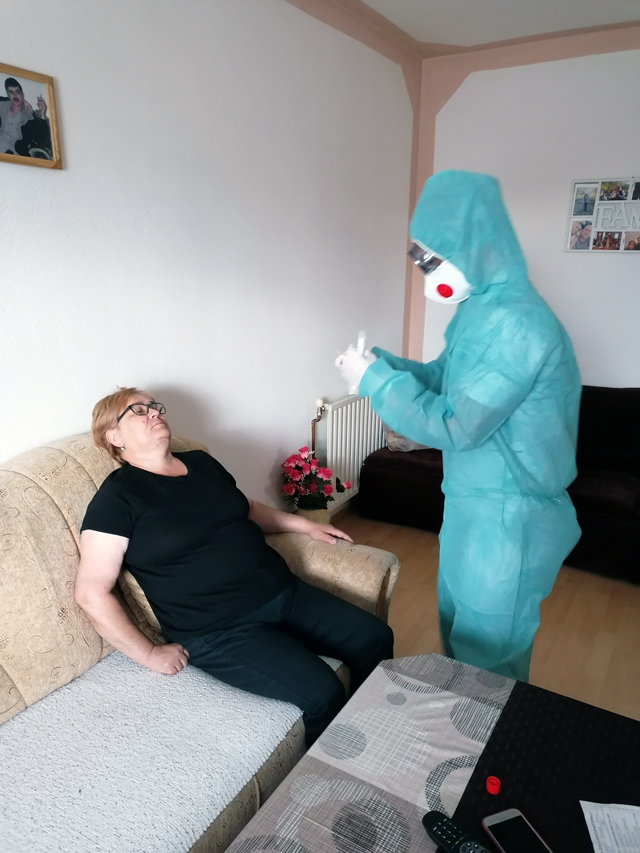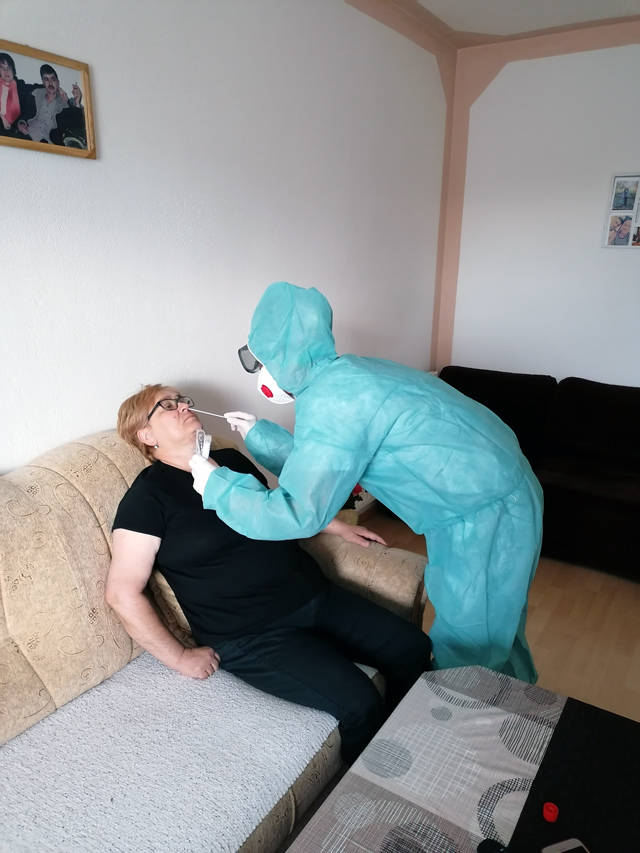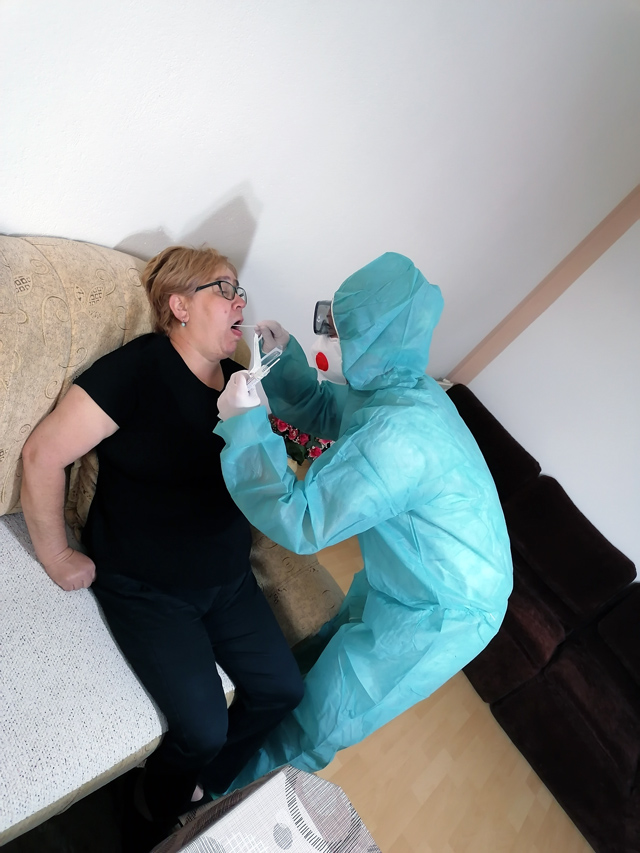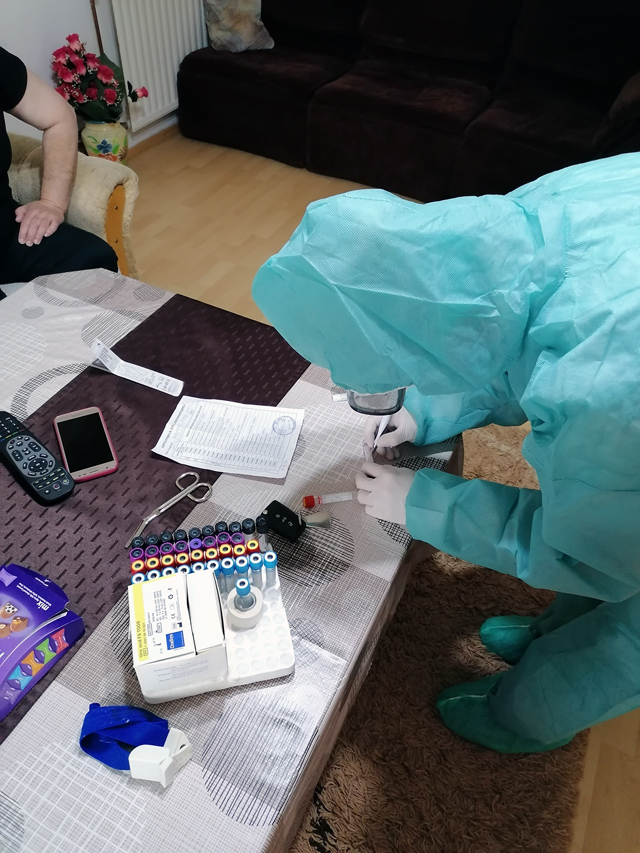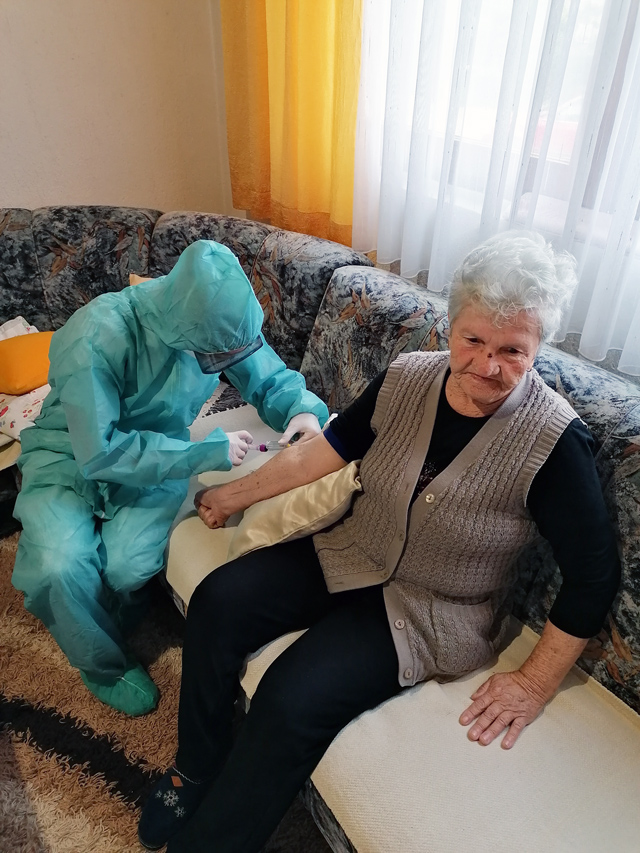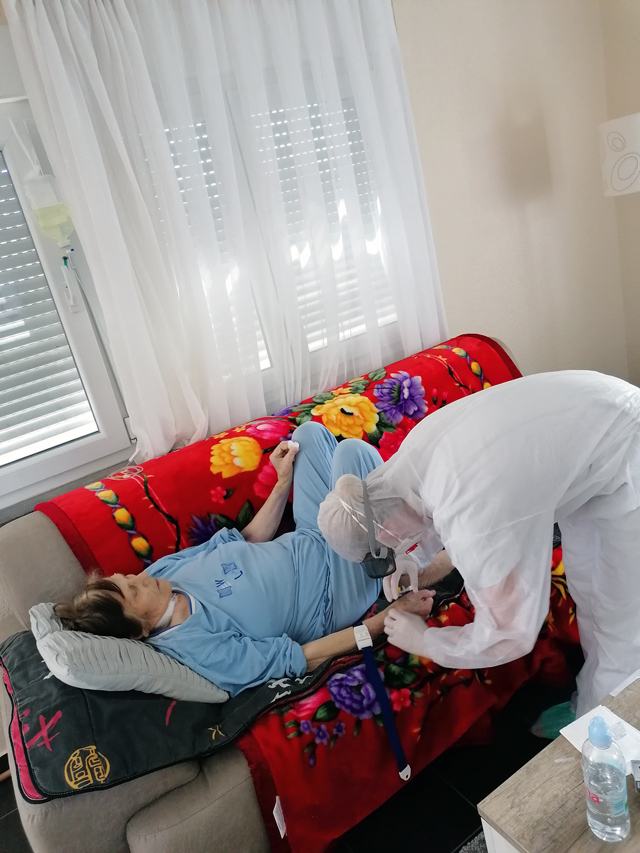Zdenka Lujic works as a community nurse at the Primary Health Care Centre of Odzak. During the current COVID-19 pandemic, she was assigned the role of “the person in charge of COVID-19”. There is a lot to be done and stress and physical exhaustion are present, but love for her job and the gratitude of patients give her the strength to endure.
Primary health care centres (PHCC) are the first line of defence in the fight against the COVID-19 pandemic at the local level. The reorganization of work undertaken at the PHCC Orasje has brought to Zdenka a new role of “the person in charge of COVID-19”, in addition to her regular tasks. She has been involved in the procurement of personal protective equipment and demonstration of its proper use, organisation of mobile field teams and taking of swab samples for COVID-19 testing.
In addition to the regular planned home visits to patients with serious and chronic diseases and palliative care needs, Zdenka has taken on many extra tasks on a daily basis. They include emergency home visits and interventions, purchase and delivery of mediations, food and hygiene products to the elderly and weak, as well as a large number of visits to people in self-isolation unable to go to the health facility themselves. Among them are also mothers with the new-borns.
Going to these home visits requires maximal caution, prior telephone triage and wearing of complete personal protective equipment that is rather demanding. Zdenka adds that “it is very important to show to people with suspected or confirmed COVID-19 infection understanding, empathy and that we are not afraid of them. We are aware that it is not easy for them. Even after the testing results show that they are negative and self-isolation is no longer needed, neighbours and family members often refuse to be in contact with them”.
Patients react differently. Zdenka explains that some patients, mainly elderly and those living alone, are happy to be visited in their homes. But there are also patients who are scared and perceive community nurses as a potential source of infection. “However, doing home visit is special. A bond is created with patients who let us enter the most intimate part of their lives, their homes. Every community nurse eventually manages to allay and dispel that fear by showing empathy and communicating closely with them”, Zdenka tells us.
While doing her job, Zdenka is at a high risk of getting infected and thus feared for the health of her family, children and parents. Prior to making a home visit to the first patient with COVID-19 for a swab, Zdenka had to take her children to her parents so she and her husband, who also works in the health sector, could come back home every day without fear. “Despite the immense physical exhaustion, this emotional stress was the hardest to bear. I had to watch my children from a window and could only play football with them because it allowed us to be at the needed distance. But when one loves one’s job and is devoted to the patients, everything can be endured. The gratitude and smiles of our patients give us extra strength”, Zdenka says.
“I think that relevant institutions did a good job, considering the circumstances and the unfamiliar situation that we have found ourselves in”, Zdenka adds. She advises all the people to stay at home with their dearest ones, maintain good personal hygiene and keep physical distance in order to reduce the spread of the virus and minimize the harm. The pandemic has shown that nurses are the foundation and the strongest component of the health care system. Therefore, health authorities need to invest more in the further growth of this profession and ensure better working conditions with needed regulations.
